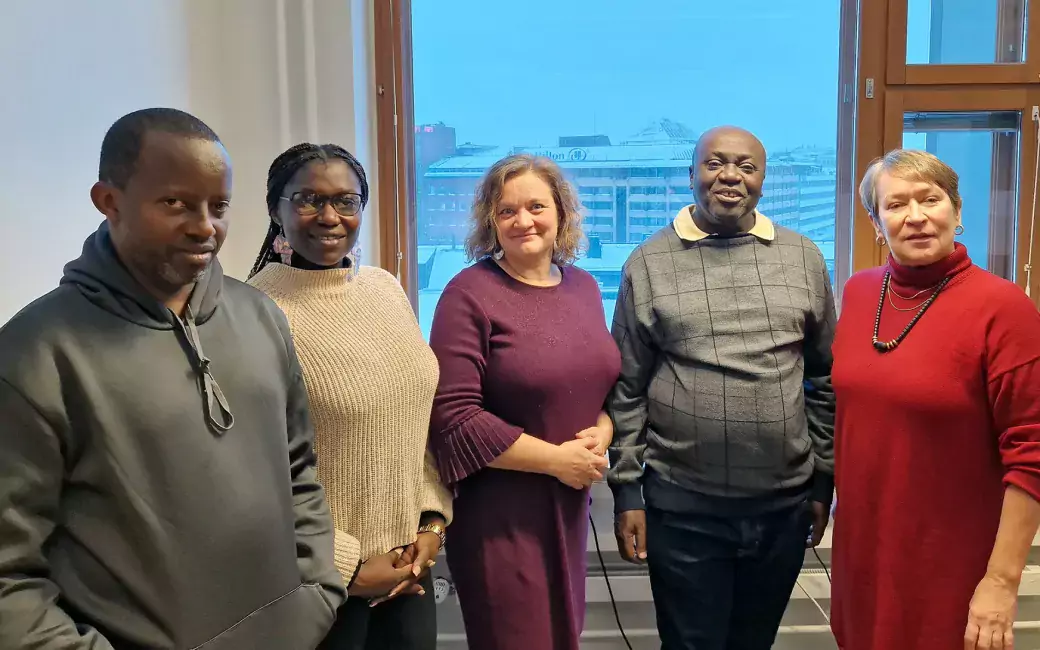The Higher Education Pedagogies for Teacher Education (HEP-TED) has been granted a 1.1 million euros in funding from the Ministry for Foreign Affairs of Finland. The project is aimed at developing and strengthening teacher training in Rwanda.

In addition to the University of Helsinki, involved in the project are Rwanda Polytechnic, the University of Rwanda, the Jamk University of Applied Sciences, the Tampere University of Applied Sciences and Tampere University. The project's extensive cooperation network was established under the GINTL Africa network coordinated by the University of Helsinki.
The Ministry for Foreign Affairs supports the three-year collaborative project of five Finnish and two Rwandan higher education institutions. The consortium is headed by University Researcher Hanna Posti-Ahokas, Regional Expert of the GINTL network at the Faculty of Educational Sciences, University of Helsinki.
The primary goal is to enhance the quality of higher education and train skilled employees
"The most important goal is to improve the quality of teacher education, which is why higher education administration must be developed, engendering collaboration among all parties," Posti-Ahokas says.
Support for administrative development is provided by the administrative studies unit of Tampere University and the Higher Education Council of Rwanda.
Professor Wenceslas Nzabalirwa from the College of Education at the University of Rwanda is excited about the project.
"With the aim of training well-educated and skilled employees, the project is in line with the Vision 2050 of the Rwandan government and the National Strategy for Transformation 2017-2024."
According to Nzabalirwa, the HEP-TED project responds to partnership and networking efforts that support the country's goal of improving the quality and relevance of education by increasing high-quality teacher training in general education as well as technical and professional education.
"Countries are as good as their teachers," Nzabalirwa says.
Teacher trainers at the University of Rwanda and Rwanda Polytechnic are not provided with sufficient training in higher education pedagogy. This is why the project supports the training of higher education teachers (in both general and professional education), enabling them to improve their knowledge and skills related to competence-based curricula and assessment, as well as novel pedagogical approaches (including learning design and digital and remote teaching).
The project offers an excellent opportunity for collaboration between units of higher education pedagogy and professional teacher training in Finland and Rwanda.
"The goal is to strengthen cooperation across institutional boundaries, establish an active learning environment and share best practices even after the project has concluded," says Posti-Ahokas.
The collaborative project supports Finland's Africa strategy and international cooperation
The project promotes the development targets of Rwanda and the implementation of Finland's Africa strategy.
HEP-TED has three goals: improving the leadership capacity of higher education institutions, improving the quality of teacher education and strengthening cooperation between educational institutions.
The goals will be achieved by strengthening the capacity of the participating educational institutions to maintain and improve teacher education, by developing innovative teaching methods and pedagogical approaches in teacher education, by redesigning curricula, and by introducing the best practices and technical teaching solutions.
"To ensure success, the partnership is based on effective communication, shared goals and a commitment to continuous collaboration," Nzabalirwa notes.
"Regular assessment and feedback will help identify development targets and ensure that the collaboration will continue to meet the evolving needs of the higher education institutions implementing it."
Both Posti-Ahokas an Nzabalirwa believe that the collaborative project can make a difference in education policy and practices in both countries.






